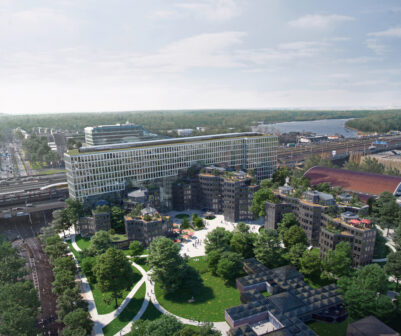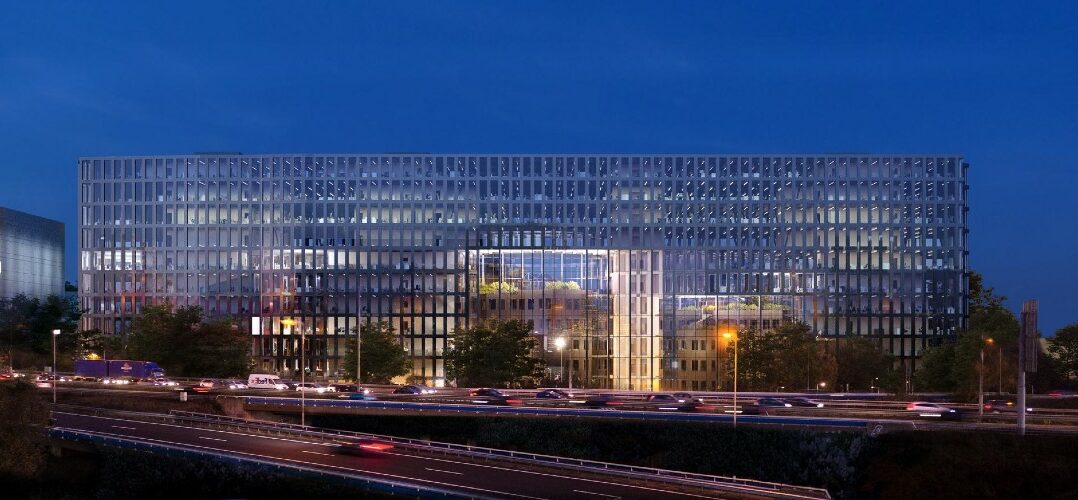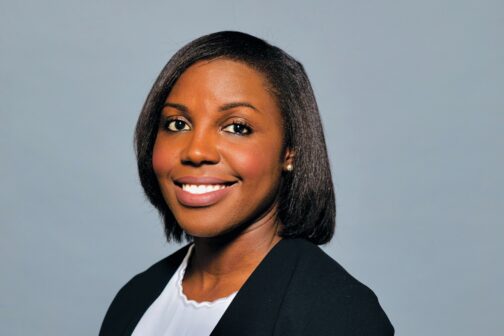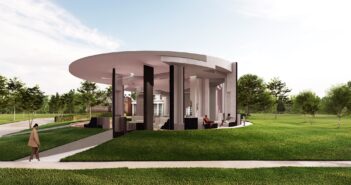You might remember Laura Denenga, senior loan origination manager at Allianz Real Estate, from the MIPIM Leaders’ Perspectives Summit earlier this year, when she interviewed Andy Poppink, CEO for EMEA markets at JLL.
Even while studying economics at university in New York, Denenga knew that she wanted to go into real estate because of the tangibility of the investment class. “Real estate is something that you can see and touch; we all use and experience real estate, where we work and live, and as part of our recreation,” she says.
Denenga graduated in the same year that Allianz Real Estate launched its European debt platform – in 2011. Her first job was working for a commercial real estate advisor in Atlanta, the US. Her big break came when she was relocated to London in 2013 to set up a European debt platform on behalf of an Australian pension fund.
I moved from asset managing loans to originating loans, and playing a significant role in the establishment of their platform to lend in the UK & Ireland – Laura Denenga
Laura Denenga, senior loan origination manager, Allianz Real Estate – climate change
Joining Allianz Real Estate’s European debt portfolio team
More recently, in January 2020, she joined the London office of Allianz Real Estate as a senior loan origination manager, sourcing and executing loan sizes of over €100m in the offices, multi-family and logistics sectors.
Given that the US is a more established market for debt financing, this was an experience that Denenga was able to bring to Europe, together with a global approach. “I am Zimbabwean. I moved to the US, then to London, and now I am working across Europe. I thrive being thrown into different environments and working with people from across the globe,” she explains.
“International experience is becoming increasingly important as the industry is becoming much more global. For example, at Allianz Real Estate, we work with a worldwide network of buyers and developers, family offices, funds and like-minded institutional investors. Our clients invest across the world, and that is how our European debt team at Allianz Real Estate operates.”
The firm’s European debt portfolio team – under the leadership of Roland Fuchs – works out of three hubs in Munich, Paris and, since 2019, London. The portfolio grew by around 15% last year to reach more than €10bn at the end of 2020. Going forward, the ambition is to increase the share of investments dedicated to transitional assets and development loans to meet the increasing investor appetite for ESG-focused loans.
Mitigating climate change: the transformation needed
So what is the big transformation that Denenga would like to see in the world of real estate?
“I would like to see the lending community support the move towards a more sustainable built environment, with lower carbon emissions and a more sustainable use of resources, by implementing lending policies that drive and influence this change among developers and borrowers.”
One of the ways Allianz Real Estate is doing this, explains Denenga, is by creating targets, both in the short and long term. At the end of April, the firm announced its ambition to reduce its portfolio’s carbon footprint by 25% by 2025 and to be net zero by 2050.
« Considering the real estate sector accounts for approximately 40% of global greenhouse gas emissions, lending practices can strongly contribute to the global decarbonisation,” she adds.
I would like to see the lending community support the move towards a more sustainable built environment, with lower carbon emissions and a more sustainable use of resources – Laura Denenga, Allianz Real Estate
The pressure to adopt a sustainable mindset is coming from multiple angles, says Denenga.
For the developer, or owner, it’s about realising that:
- Large lenders such as Allianz will increasingly only lend on projects that meet requisite sustainability targets.
- The demand from tenants is to also occupy ‘sustainable’ buildings in order to meet their own targets and to attract the employee talent that they need for growth.
- Some of the highest rents are being achieved in green buildings – an indication that sustainably designed assets can lead to improved profitability and investment performance.
“As leverage is a tool that can be implemented to bolster equity returns,” explains Denenga, “it is in the best interests of the developer to start implementing the practices and introducing the targets that are aligned with the principles of lenders such as Allianz in order to finance their projects.”
This puts lenders in a crucial role in the mitigation of climate change.
Key project: Tripolis Park in Amsterdam
Not only was Denenga attracted to work in the sector by the tangibility that real estate offers as an asset class, but also by the way that every transaction is different.
“Even if two identical office buildings are right next to each other, each one will have unique characteristics that could be driven, for example, by the tenant profile, lease durations and ownership. This makes every transaction a new adventure, a new experience,” she says.
One of those “new experiences”, when she first joined Allianz Real Estate, was executing the redevelopment financing of Tripolis Park in Amsterdam, designed by architectural practice MVRDV.
Tripolis Park speaks to my interests in regeneration, place-making, and sustainability – Laura Denenga
Allianz has provided a €196m loan to Blackstone to refinance and refurbish the project’s two existing office buildings (designed originally by renowned Structuralism architect Aldo van Eyck) and to construct a new 11-storey ‘groundscraper’ office block, which also acts as a sound screen for the adjacent A10 motorway ring-road.

Tripolis Park, Amsterdam ©Proloog
The project, due to open in 2022, with Uber as the main tenant, also includes new roof gardens, a new public park, solar-powered buildings and 140 affordable residential units. On completion, the project is set to achieve WELL Gold and BREEAM Excellent certifications.
“I enjoyed working on the financing of the Tripolis Park project as it speaks to my interests in regeneration, place-making, and sustainability,” she says.
We’re all part of a global ecosystem
So, why the interest in sustainability? An eye-opener for Denenga came when a powerful cyclone hit her home country of Zimbabwe in 2019. Cyclone Idai, as it was called, led to over a thousand deaths and US$2bn of destruction. “It is unusual for such a devastating cyclone to effect Zimbabwe, a landlocked country. It really resonated with me, and made the acute impact of climate change very clear.”
“If any community is affected by a crisis, whether a pandemic or climate change, it will ultimately affect us all. We need to do whatever we can in our own capacity to contribute to the improvement of the planet at large”
“The pandemic has been an important reminder that we’re living in a global ecosystem, and that we’re all connected. If any community is affected by a crisis, whether a pandemic or climate change, it will ultimately affect us all. We need to do whatever we can in our own capacity to contribute to the improvement of the planet at large.
“For me, it is therefore motivating to partake in lending practices that support projects that provide clear environmental benefits, in the hope that in a small way it is adding to the mitigation of climate change.”
Main picture of Tripolis Park ©Proloog




